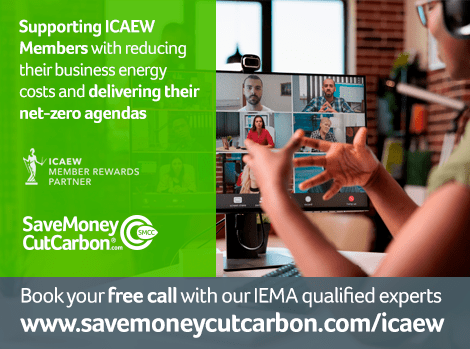It's one of the summit's four paradigms, the others being:
- fast-tracking the energy transition and slashing emissions before 2030;
- transforming climate finance, by delivering on old promises and setting the framework for a new deal on finance; and
- mobilising for the most inclusive COP ever.
It's one of the reasons why the Conference of Parties in the Gulf has put so much emphasis on education this time round. Knowledge is the key to mobilising action at both individual and national levels.
Companies can play a central role in this by investing in employee education to empower them to get involved and bring in fresh ideas and initiatives. This can have multiple positive outcomes for the business.
Sharing insights, expertise and information in a digestible way is clearly much needed in the UK, as a government survey has indicated. Only 9% of participants stated that they knew a lot about net zero, although 87% of participants had heard of it.1
There is a clear appetite among British people to act on climate change at a personal level. However, gaps in knowledge are preventing this. Recent studies show that concern for the climate is at an all-time high and eco-anxiety is growing as more frequent extreme weather is reaching more new places around the world. A YouGov poll in August showed an overwhelming 82% of respondents considered climate change to be either very or fairly important2 and another YouGov survey highlighted that two-thirds of people (68%) in the UK are experiencing eco-anxiety3. Empowering personal pro-environmental behaviour can be an effective way to help tackle these negative perceptions.

In the work environment, employers can team with staff to share useful, timely and effective knowledge around climate change, and SaveMoneyCutCarbon's employee engagement app is designed to help. It's rewarding, fun and engaging. Staff can sign up for a year-long programme of weekly insights and a wide range of eco-rewards. Employers also benefit from strong reinforcement of their Environmental, Social and Governance (ESG) strategies.
The social pillar of ESG is often overlooked and underutilised, but employees can be a powerful tool in a company's sustainability strategy; small changes in behaviour across a workforce can add up to a significant overall impact. The key to harnessing this force is making it easy for the staff to make sustainable choices and leading by example. To this end, facilitating climate education provides a greater understanding of both the importance and the application of sustainable behaviour changes. Free ESG advice is available on ICAEW's Carbon Mentor booking page.
And putting nature, people, lives, and livelihoods at the heart of climate action is less likely to succeed if people are overwhelmed by fear of the future of the planet while having little access to trusted and reliable information that is balanced and helpful.
As part of any business energy audit SaveMoneyCutCarbon sends out a short questionnaire to staff that gives a good indication of levels of sustainability knowledge while underlining the importance of eco-awareness. It's a proactive and positive starting point for companies and staff to take further steps. Companies can also find further support with end-to-end sustainability solutions, from audit to install.
It's hoped that COP 28 will help to reset the climate agenda. Certainly, the organisers declare that this year, more than ever, unity is a prerequisite for success. And the right information, interpreted by the best minds informed by the strongest knowledge base is crucial. Education is at the heart of future success in abating the worst effects of climate change.